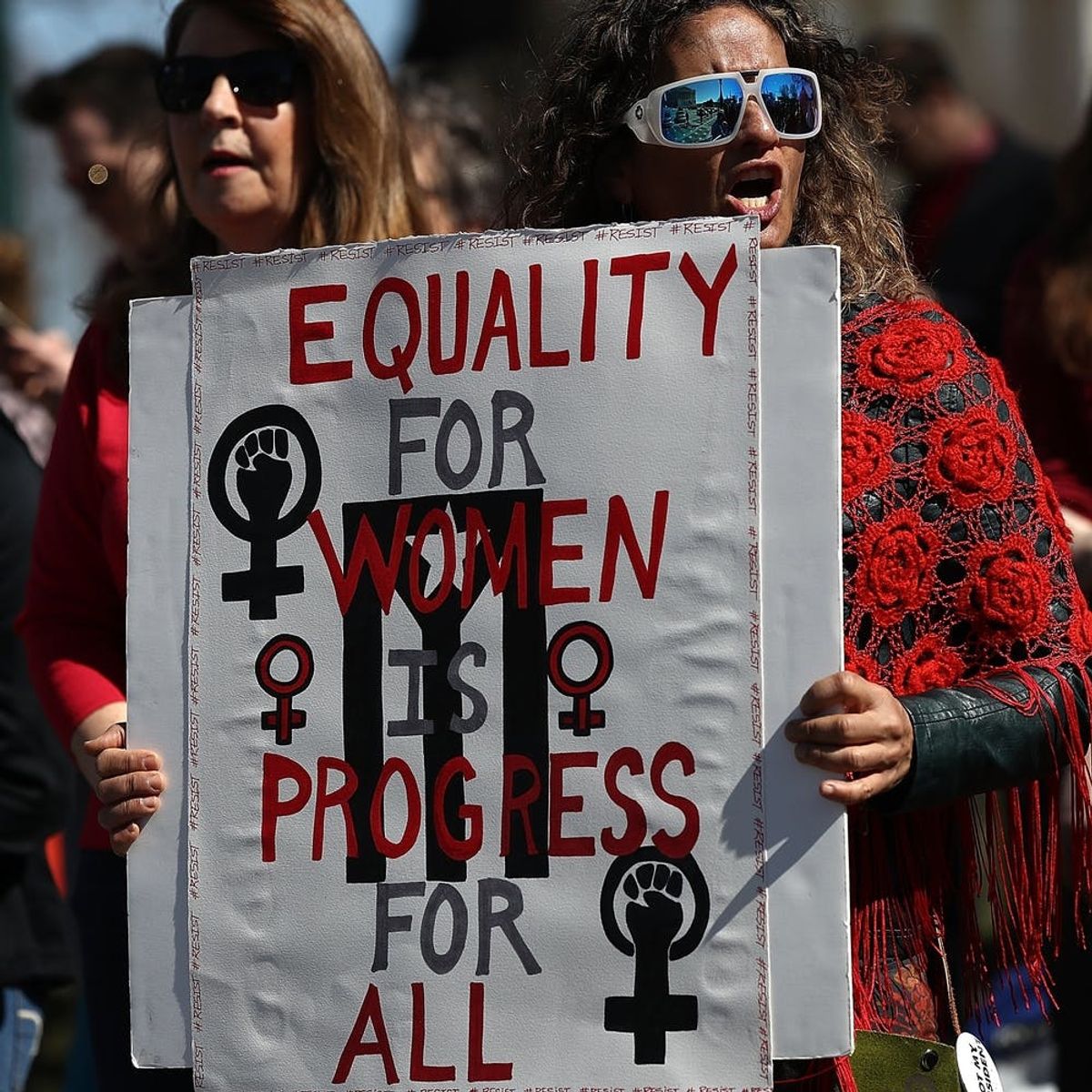Only one more state needs to ratify in order to be able to add the ERA to the Constitution.
Illinois Just Ratified the Equal Rights Amendment — Here’s What That Means

On Wednesday, Illinois ratified the Equal Rights Amendment (ERA), bringing the total count of ERA states to an exciting 37 states. The ERA was introduced nearly a century ago but still has yet to be added to the US Constitution. But now, just one more state needs to ratify the ERA for it to become an official part of the Constitution, providing much-needed protections against sex-based discrimination.

Democratic Illinois state representative Stephanie Kifowit said of the state’s decision, “I am appalled and embarrassed that the state of Illinois has not done this earlier,” according to the Chicago Tribune. She added, “I am proud to be on this side of history and I am proud to support not only all the women that this will help, that this will send a message to, but I am also here to be a role model for my daughter.”
While many people assume that the Constitution currently protects against sex-based discrimination, the sad fact is that it does not. The ERA would fill this gap in federal legal protections against sex-based discrimination. While many state constitutions protect citizens from sex-based discrimination, there are no such federal protections, which is why advocates throughout the decades have continued to fight for the ERA.
The ERA was first introduced in 1923, following the passage of (white) women’s suffrage. It was not passed by Congress until 1972, and then it went to the states for ratification. Initially, 35 states ratified the amendment, and all states had until 1979 to ratify or not. The deadline was later extended to 1982. Though the deadline has passed, proponents of the amendment argue that it still can still legally be ratified, the Tribune reports.

The remaining states that have still not voted to ratify are all quite conservative. That list, according to equalrightsamendment.org, consists of Alabama, Arizona, Arkansas, Florida, Georgia, Louisiana, Mississippi, Missouri, North Carolina, Oklahoma, South Carolina, Utah, and Virginia. Though these states all skew red, it’s possible that pressures related to #MeToo and backlash to President Trump’s misogyny could be enough to prompt another state to ratify.
Most of the opposition to the ERA comes from conservatives who don’t want abortion rights sealed in the Constitution. Peter Breen, a Republican Illinois state representative, claimed Wednesday that “[The ERA] will expand taxpayer funding of abortions, very well might roll back our parental notice (for minors to have an abortion) law and have other negative impacts on various abortion regulations,” the Tribune reports. While Breen’s interpretation is extreme, it’s true that the ERA would be a tool to protect federal abortion laws.
While Roe v. Wade makes abortion federally legal, it could be overturned by the Supreme Court. Enshrining abortion rights in the Constitution would add another layer of protections for patients. But of course, the assurance of additional federal legal support for abortion patients is one of the huge reasons why the ERA is necessary in the first place.
Carol Robles-Román, who helps lead the ERA Coalition and the Fund for Women’s Equality, told NPR Illinois, “The Equal Rights Amendment will be a very effective tool for women of color. When you’re talking about violence against women, when you’re talking about sexual harassment, when you’re talking about rape, women of color are the most affected.”
Though the fight for the ERA is not yet over, Illinois’s ratification moves the amendment a step closer to the Constitution. The amendment would still face debate over whether or not it can be ratified due to states coming in after deadline, but in a time when the rights of minority genders are newly under attack, we could really use another safety net.
What do you think? Tell us on Twitter @BritandCo.
(Images via Getty Images)
































































































































